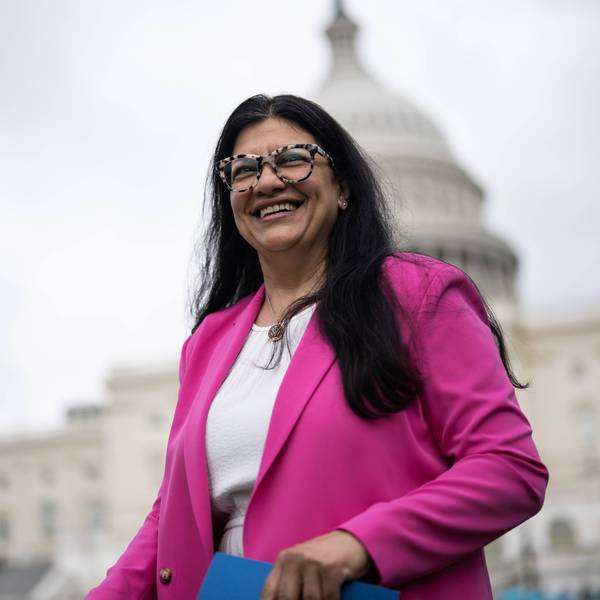At the outset of an election cycle expected to attract unprecedented levels of outside spending from ultra-rich donors like the Koch brothers, a new poll finds that the American people, in fact, oppose the unlimited flow of dollars into politics, do not think money equals speech, and want to restrict the power of the one percent to buy ballot outcomes.
Released Tuesday by The New York Times and CBS, the findings "reveal deep support among Republicans and Democrats alike for new measures to restrict the influence of wealthy givers, including limiting the amount of money that can be spent by 'super PACs' and forcing more public disclosure on organizations now permitted to intervene in elections without disclosing the names of their donors," the Times summarizes.
We Interrupt This Article with an Urgent Message! Common Dreams is a not-for-profit organization. We fund our news team by pooling together many small contributions from our readers. No advertising. No selling our readers' information. No reliance on big donations from the 1%. This allows us to maintain the editorial independence that our readers rely on. But this media model only works if enough readers pitch in.
We urgently need your help today.
If you support Common Dreams and you want us to survive, your gift today is critical.
Please give now to our Mid-Year Fundraiser! |
A stunning 84 percent of respondents said that money has "too much influence" in American political campaigns today.
Furthermore, 85 percent of respondents said that victorious candidates either sometimes or most of the time "directly help the people and groups who donated money to their campaigns."
Interestingly, the majority of respondents--58 percent--think that both the Democratic and Republican parties benefit equally from "money in political campaigns."
From across the political spectrum, people in the U.S. are calling for change with "near unanimity," the study finds.
"There is strong support across party lines for limiting the amount of money individuals can contribute to political campaigns, limiting the amount of money groups not affiliated with candidates can spend, and requiring unaffiliated groups to publicly disclose their donors if they spend money during a political campaign," states a summary of the survey's findings.
The findings come at a time of record inequality between the ultra-rich and the poor and working classes in the United States. A recent report from the Organization for Economic Cooperation and Development finds that the richest 10 percent of U.S. households own 76 percent of the country's entire wealth.
A report released Tuesday by Reuters finds that, as a result, there are signs of growing awareness--and resentment--of the ability of billionaires to buy elections.
"Whether these are the beginning of a new trend is far too soon to say, but polls show there is wider discontent about the perceived influence of big money in U.S. politics and a growing gulf between the country's very rich and very poor," the report states.



